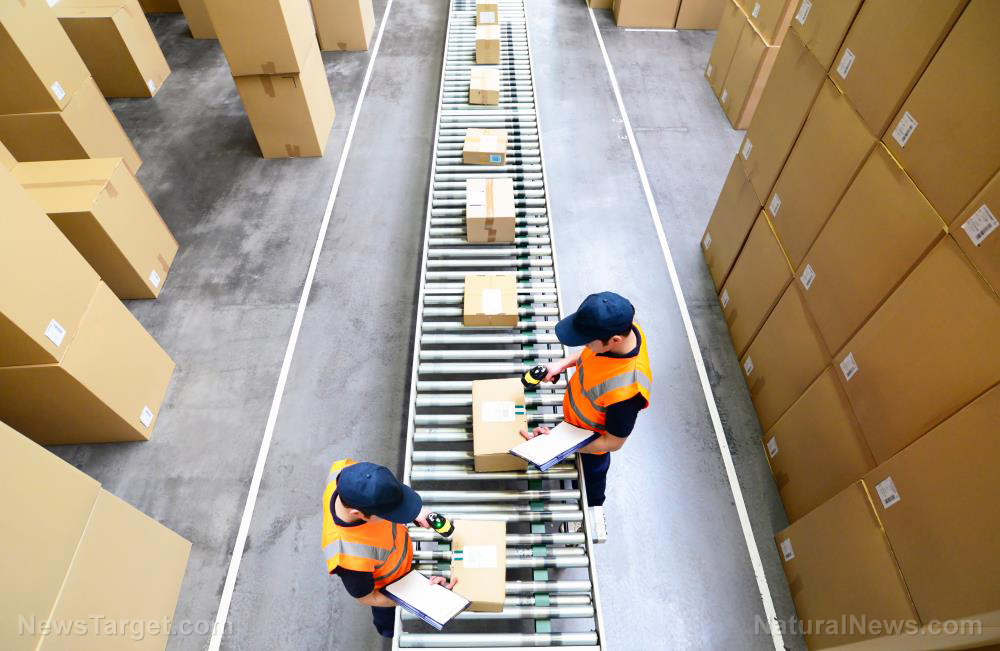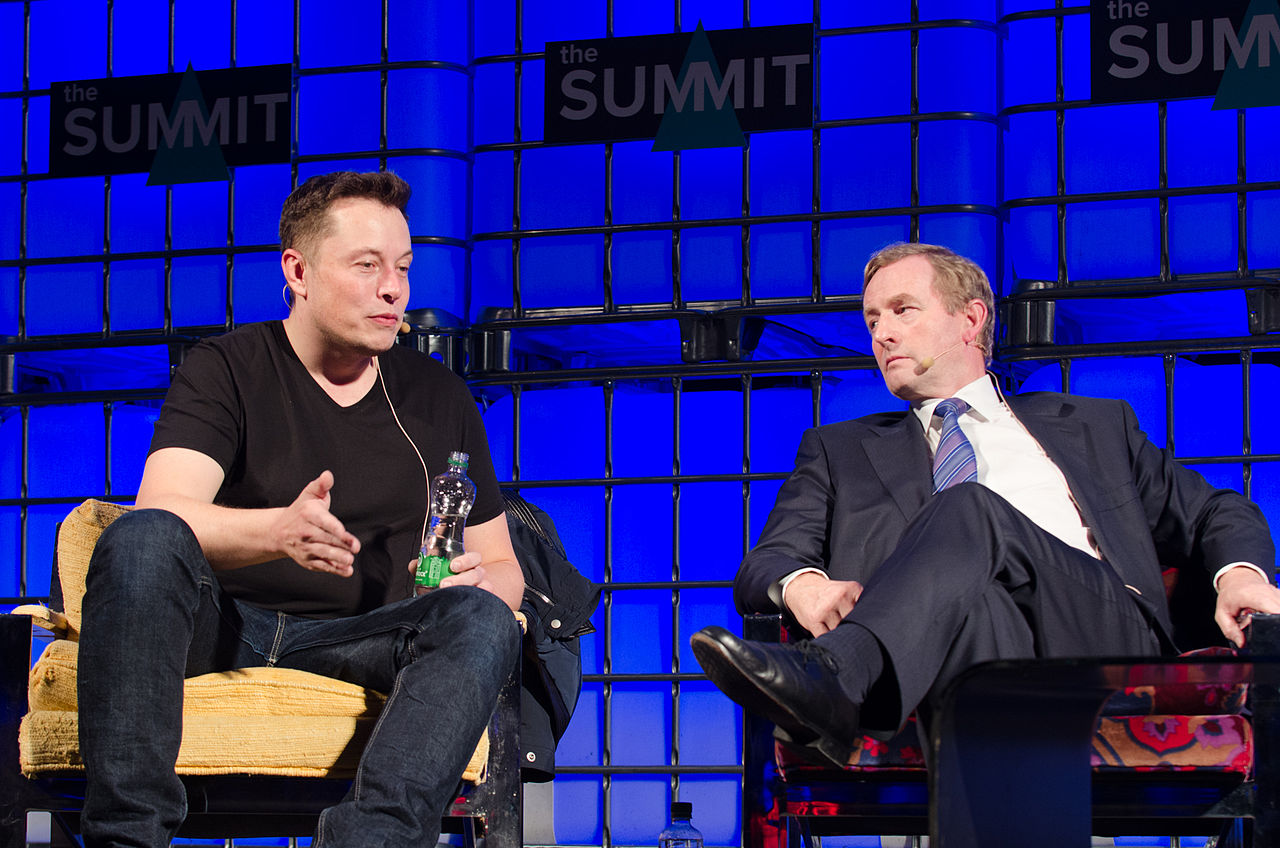There’s blood on your phone: Tech giants linked to “slave labor” in Chinese factories
05/25/2020 / By Michael Alexander

The smartphone you are using may be a product of forced labor and modern-day slavery, according to a report by the think tank Australian Strategic Policy Institute (ASPI).
The report, released on March 1, details how several thousand ethnic Muslims from China’s Xinjiang region are forced into modern-day slave labor in a network of factories — most of which are integral parts of the supply chains of many major international companies.
“More than 80,000 Uighurs were transferred out of Xinjiang to work in factories across China between 2017 and 2019,” the think tank said in its report, adding that the estimated figure is “conservative,” and the actual numbers of affected individuals is likely to be far higher.
ASPI also notes that the workers — some of whom were sent directly from detention camps — are made to live in segregated dormitories, as well as forced to attend Mandarin and ideological and behavioral re-education classes outside their working hours. In addition, the workers are also subjected to constant surveillance and are forbidden from participating in religious observances. (Related: The Chinese government is generating a fortune by harvesting organs from religious prisoners … and nobody is doing anything about it.)
“It is extremely difficult for Uighurs to refuse or escape these work assignments, which are enmeshed with the apparatus of detention and political indoctrination both inside and outside of Xinjiang,” the ASPI report said, adding that in addition to constant surveillance, Uighurs and other minorities are also subjected to arbitrary detention if they refuse their government-sponsored work assignments.
China’s foreign ministry has since denied the ASPI report, with ministry spokesman Zhao Lijian noting that the graduates of the “vocational centers” — Beijing’s official name for the detainment facilities — have since become employed, and are now living “a happy life.”
According to Zhao, the labor program highlighted in the report is simply Beijing’s method of “training” Uighurs and other minorities and give them jobs — a statement that, according to the Associated Press, mirrored official Party propaganda that portrayed Uighur as being “rural” and ideologically “backward” before being trained by the Chinese Communist Party (CCP).
“This report is just following along with the US anti-China forces that try to smear China’s anti-terrorism measures in Xinjiang,” Zhao said, calling ASPIs report “groundless” and “slander.”
China, over the past four years, has attracted widespread international condemnation for its network of extrajudicial “re-education camps” and prisons in the Uighur Muslim-majority region of Xinjiang. A 2019 report by the Council on Foreign Relations noted that up to two million individuals have been detained since April 2017.
Beijing has largely defended the camps, with one Party official claiming that these are “vocational training centers” that provide “free” nutritious meals, “free education” and dorms equipped with radio, television and sports facilities to minorities.
This crackdown on Uighurs and other Muslims — including ethnic Kazakhs and Uzbeks — is fueled mainly by Beijing’s suspicion of the Uighurs, whom the government has long accused of harboring separatist tendencies because of their distinct culture, language and religion.
Known officially as the Xinjiang Uighur Autonomous Region (XUAR), Xinjiang has been governed by China ever since the CCP took power in 1949, although some Uighurs living in the area still refer to the region as “East Turkestan.” Xinjiang, as per official state data, takes up one-sixth of China’s total landmass and is bordered by eight Central Asian countries, including Pakistan, Kazakhstan, and Kyrgyzstan.
The ASPI, in their report, identified 27 factories that are currently using Uighur workers.
These factories, the think tank’s report said, supply parts and assembled products for as many as 83 global brands. This includes tech giant Apple, whose supply chain was found to be linked to four separate factories, at least two of which have evidence of using forced Uighur labor.
One of the factories, Foxconn, employs up to 350,000 people and produces over half of the world’s iPhone units. Another factory, OFILM, manufactures cameras for Apple’s flagship products iPhone 8 and iPhone X. Apple president Tim Cook personally visited the OFILM factory in 2017.
Apple has since released a statement denying any knowledge of the ASPI report.
“Apple is dedicated to ensuring that everyone in our supply chain is treated with the dignity and respect they deserve. We have not seen this report but we work closely with all our suppliers to ensure our high standards are upheld,” the tech giant said in a statement.
Samsung, another company implicated in the forced-labor scheme involving Uighurs, has not released any comments.
According to a report by the South China Morning Post, a new wave of Uighur workers is set to be deployed in factories spread out across 19 provinces as part of Beijing’s plan to kickstart its economy, which has dropped in the wake of the COVID-19 pandemic.
Sources include:
Submit a correction >>
Tagged Under:
Apple, Beijing, Big Tech, business ethics, China, communism, Communist Party, corporations, evil, forced labor, Glitch, human rights, human rights abuses, human rights violations, modern-day slavery, Muslims, slave labor, slavery, tech giants, technology, Twisted, Uighur, unethical
This article may contain statements that reflect the opinion of the author
RECENT NEWS & ARTICLES
COPYRIGHT © 2018 TECHGIANTS.NEWS
All content posted on this site is protected under Free Speech. TechGiants.news is not responsible for content written by contributing authors. The information on this site is provided for educational and entertainment purposes only. It is not intended as a substitute for professional advice of any kind. TechGiants.news assumes no responsibility for the use or misuse of this material. All trademarks, registered trademarks and service marks mentioned on this site are the property of their respective owners.





















